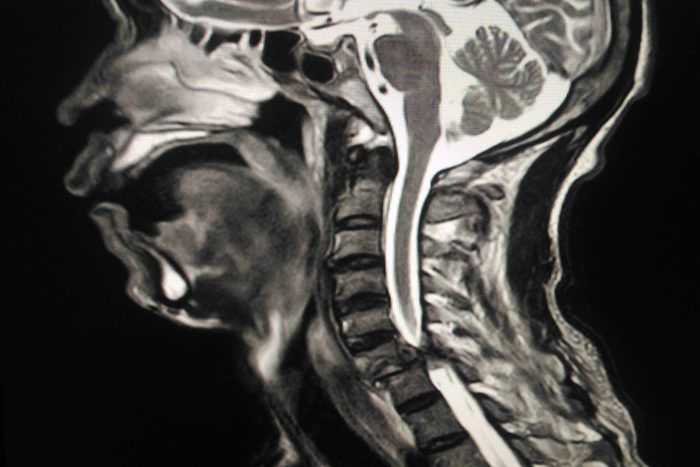
Stroke basics
What causes a stroke? Strokes happen when blood vessels carrying blood to the brain either burst or are blocked, starving the brain of oxygen. They can lead to brain damage and even death. Nearly 62,000 Canadians have a stroke each year. While strokes are declining among the elderly, rates in adults under age 45 shot up by 43 percent between 2000 and 2010, a study reported, possibly due to a rise in the prevalence of high cholesterol, type 2 diabetes, and illicit drug use. Classic signs of a stroke include face-drooping, arm weakness, and difficulty speaking—but there are other sneakier symptoms women are likely to ignore.
Smoking, being overweight, and a family history of stroke are major factors that increase a person’s risk. But recent research has also uncovered several surprising things that can also increase your chances of suffering a stroke.
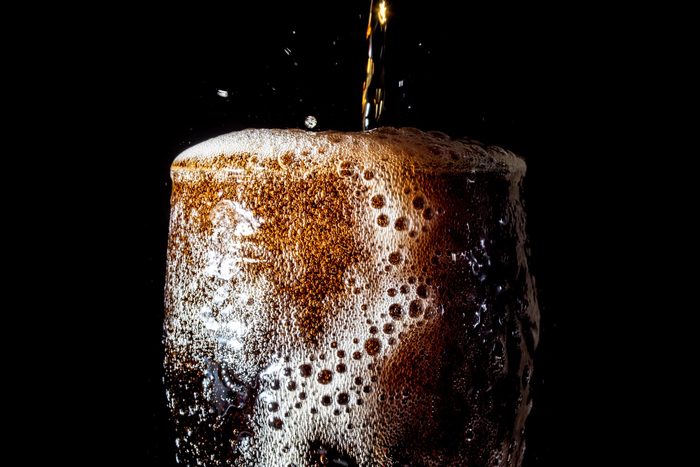
Diet drinks
A recent study that followed more than 80,000 women for over a decade detected a link between artificially sweetened drinks to an increased risk of stroke. The researchers were careful to say that these findings only apply to older women who have gone through menopause, and the research can’t definitively finger diet sodas as the culprit. Still, if you have a heavy diet-soda habit, you may want to cut back: “Our research and other observational studies have shown that artificially sweetened beverages may not be harmless and high consumption is associated with a higher risk of stroke and heart disease,” lead author Yasmin Mossavar-Rahmani, PhD, told USA Today.
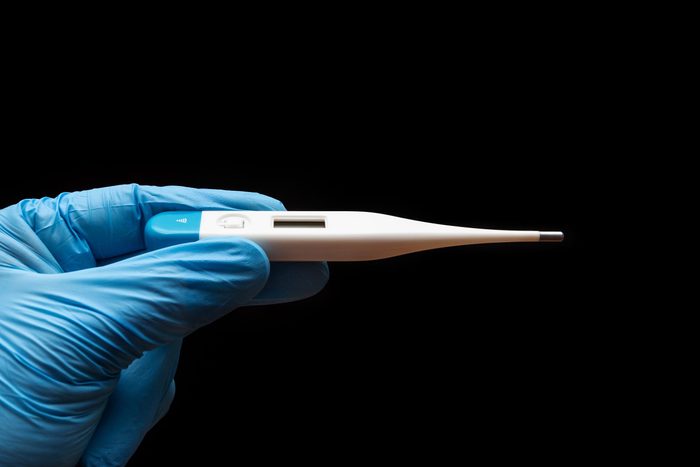
The flu
Columbia University researchers have found that serious flu or flu-like symptoms to a 40 percent increase of having a stroke in the weeks following, according to two new preliminary studies. Earlier research has uncovered similar links—a small study done in Scotland which found that people were more likely to have a stroke in the month after suffering from a respiratory virus. The inflammation that accompanies the flu may be partly to blame for the heightened risk. If you’ve had the flu, pay attention to symptoms such as trouble walking, talking, or seeing. “You could have a dissected artery or some other cause of stroke,” Philip B. Gorelick, MD, medical director of the Hauenstein Neuroscience Center in Grand Rapids, MI, told Medical News Today; he noted that the risk can remain elevated for up to a year.

Working too much
A 2015 study published in The Lancet found that people who work more than 55 hours per week have a 33 percent higher risk of stroke than those who work a standard 40 hours. While it’s true that people who work a lot may have less time to prepare healthy meals and exercise, the association persisted after researchers statistically controlled for known risk factors like high blood pressure, lack of physical activity, and high cholesterol—suggesting that there was something else about working so much that increased the risk of stroke. A large 2013 study in Denmark found that people who reported high levels of intense stress in their lives had almost twice the risk of fatal stroke as those with less stress. Worried about your heart health as well? Here are 25 secrets your cardiologist wants you to know.
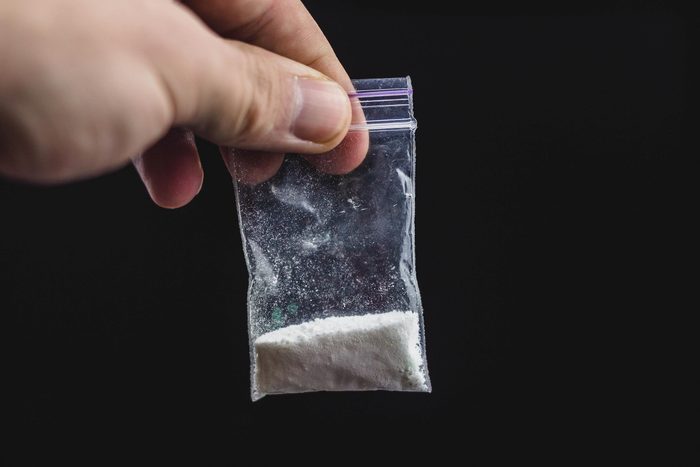
Illegal drugs
Illegal stimulants such as cocaine or methamphetamines have been linked to strokes, even in young, healthy people. A new study in the Journal of Forensic Science looked at 279 cases of fatal stroke in adults under age 45 over a recent seven-year period and found that nearly 20 percent of the victims were methamphetamine or cocaine users. There were toxicology reports in 45 of the deaths—and 71 percent of those victims had meth in their bloodstream. “All of these deaths were preventable,” said lead author Shane Darke, a professor at the University of New South Wales, in Australia. “Users of these drugs, however, appear to be largely unaware of the risk. Psychostimulant users and those treating them need to be aware of their elevated stroke risk, which may have devastating consequences.”
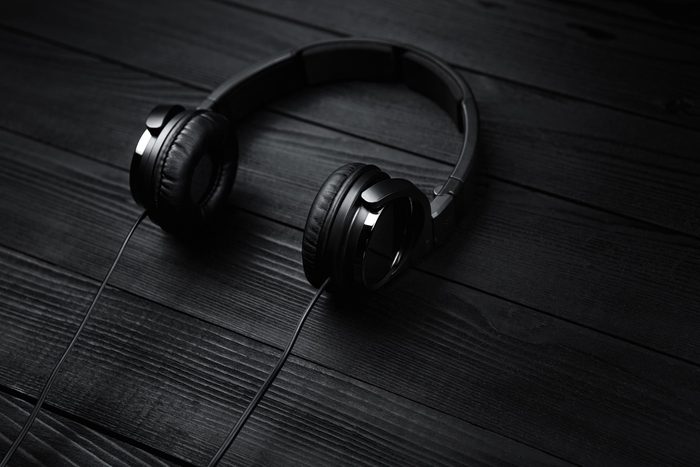
Noise pollution
The British Heart Foundation is sounding the alarm about the potential risks of living or working in an area with a lot of noise. Studies on noise pollution and stroke typically have been small, but the results are concerning: For example, one 2015 study published in the European Heart Journal found that higher levels of traffic noise in neighbourhoods were associated with an increased risk of stroke in those who lived there.
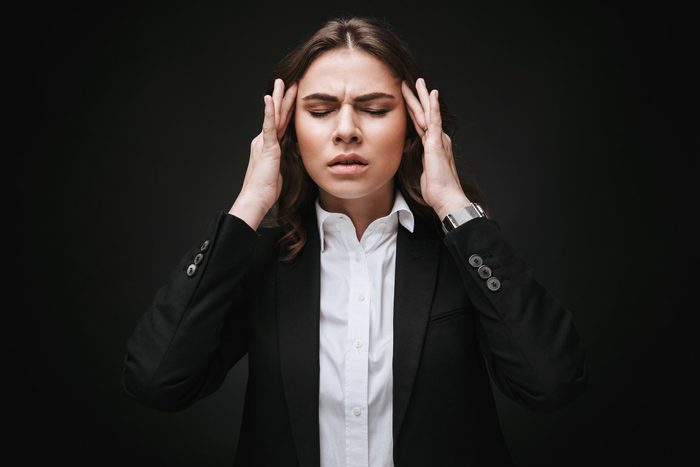
Seeing stars
Some people with migraine headaches see flashes of light or blind spots or tingling when a headache is about to hit—a phenomenon called migraine “with aura.” And a 2016 study found that people who have migraines with aura are twice as likely to have a stroke caused by a blockage (known as ischemic stroke) than migraineurs without aura. “If you get migraines with aura, make sure your stroke risk factors are assessed by your doctor,” Souvik Sen, MD, MPH, study author and a neurologist at the University of South Carolina School of Medicine in Columbia, SC, told the American Stroke Association.
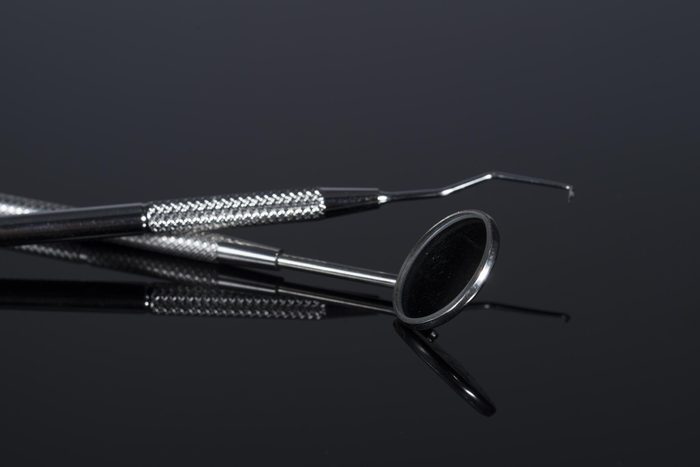
Bleeding gums
People with gum disease have more than double the risk of having a stroke or other serious cardiovascular event, the Harvard Heart Letter reports. Although the exact relationship between gum disease and cardiovascular health isn’t well-understood, many experts suspect that inflammation from the bacteria in the gums may play a role. Chronic inflammation in the body contributes to many health problems, including hardening of the arteries that can be involved in stroke. “Periodontal disease increases the body’s burden of inflammation,” periodontist Hatice Hasturk, DDS, told the Harvard Heart Letter. Signs of gum disease include bleeding, swollen, red, or tender gums, bad breath, loose teeth, or brown buildup on the gum line. Learn how to prevent against gum disease.
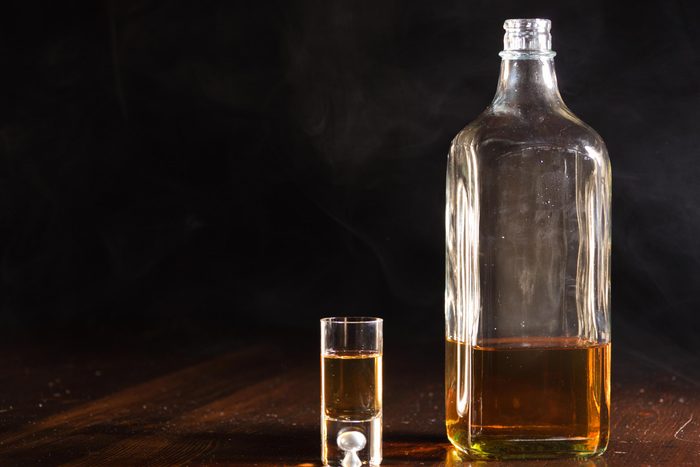
A drinking binge
Going on a bender can be deadly in more ways than one. A 2016 review of research in the journal Circulation found that downing six to nine cocktails in one night was associated with a 30 percent higher risk of a serious cardiovascular event such as heart attack or stroke the day after. That said, moderate drinking—one drink a day in women and up to two a day in men—is generally linked to better cardiovascular health. “The impact of alcohol on your risk of heart attacks and strokes depends on how much and how often you drink,” lead study author Elizabeth Mostofsky of the Harvard T.H. Chan School of Public Health told Reuters.
If you’re over the age of 50, you should read up on these health secrets.
